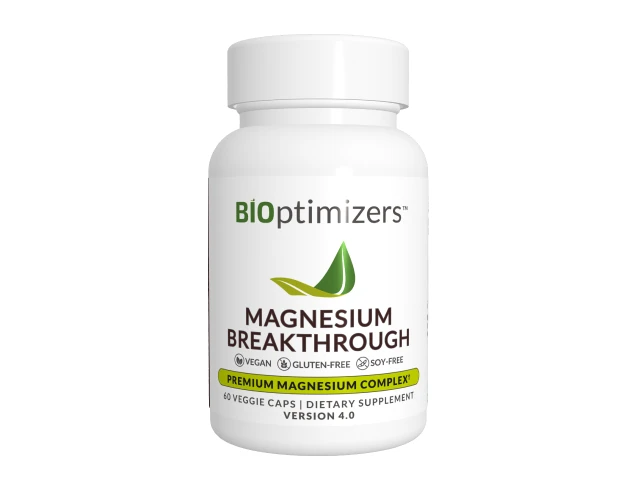💤 Why Magnesium Might Be the Missing Link in Your Sleep & Recovery Routine
I used to think sleep was just about getting enough hours. But after years of tossing, turning, and waking up feeling like I’d run a marathon in my dreams, I realized: it’s not just about quantity — it’s about quality.
And one mineral kept popping up in my research: magnesium.
Not the flashy kind of supplement you see plastered all over Instagram. Magnesium is quiet. Understated. But it’s doing some serious behind-the-scenes work — especially when it comes to sleep, muscle recovery, and stress resilience.
So I dove in. And what I found changed how I approach rest, recovery, and even my mood.

🧠 What Is Magnesium, Really?
Magnesium is an essential mineral involved in over 300 biochemical reactions in the body. That’s not a typo — 300.
It helps regulate:
- Muscle and nerve function
- Blood sugar levels
- Blood pressure
- Protein synthesis
- Bone development
- And yes — sleep quality and recovery
But here’s the kicker: most of us aren’t getting enough.
Between soil depletion, processed foods, and stress (which depletes magnesium even faster), deficiency is more common than we think. And the symptoms? Sneaky.

⚠️ Signs You Might Be Low on Magnesium
You don’t need a blood test to suspect low magnesium. Here are some common signs:
- Trouble falling or staying asleep
- Muscle cramps or twitching
- Anxiety or restlessness
- Fatigue that doesn’t improve with rest
- Headaches or migraines
- Brain fog or difficulty concentrating
- PMS symptoms or mood swings
Sound familiar? I had at least four of those before I started supplementing. And I wasn’t alone.
🌙 Magnesium & Sleep: The Science
Magnesium plays a key role in activating the parasympathetic nervous system — the part responsible for helping you relax and wind down.
It also:
- Regulates melatonin, the hormone that controls your sleep-wake cycle
- Binds to GABA receptors, which calm nerve activity and promote deep sleep
- Helps reduce cortisol, the stress hormone that can keep you wired at night
In short: magnesium helps your body shift from “go-go-go” to “rest and repair.”
And when I started taking it consistently, I noticed:
- I fell asleep faster
- My sleep felt deeper and more restorative
- I woke up feeling less groggy
- My muscles felt less sore after workouts
- My mood was more stable throughout the day

🏋️♀️ Magnesium & Recovery: Why Athletes Swear By It
Whether you’re hitting the gym or just trying to keep up with life, magnesium is a recovery powerhouse.
It helps:
- Reduce inflammation
- Support muscle repair
- Prevent cramps and spasms
- Improve energy production in cells
- Balance electrolytes (especially important if you sweat a lot)
I started using magnesium after workouts and noticed less soreness, better hydration, and faster bounce-back. It’s like giving your body the tools it needs to rebuild — instead of just hoping it figures it out.
🍽️ Can’t I Just Get Magnesium from Food?
Yes — and no.
Magnesium-rich foods include:
- Leafy greens (spinach, kale)
- Nuts and seeds (pumpkin, almonds)
- Whole grains
- Dark chocolate
- Avocados
- Bananas
But here’s the problem: modern farming practices have stripped much of the magnesium from our soil. That means even healthy foods may not contain the levels they used to.
Plus, stress, caffeine, alcohol, and certain medications can deplete magnesium faster than you can replenish it.
That’s why supplementation can be a game-changer — especially if you’re dealing with sleep issues, recovery challenges, or chronic stress.

🧪 Not All Magnesium Is Created Equal
There are multiple forms of magnesium, and each one has a different role:
| Magnesium Type | Best For |
|---|---|
| Magnesium Glycinate | Sleep, anxiety, relaxation |
| Magnesium Citrate | Digestion, mild constipation |
| Magnesium Malate | Energy production, muscle pain |
| Magnesium Threonate | Brain function, memory |
| Magnesium Taurate | Heart health, blood pressure |
| Magnesium Orotate | Cellular repair, athletic recovery |
Most supplements only include one or two forms. But your body needs a spectrum — especially if you’re targeting sleep, recovery, and overall wellness.

🌟 My Go-To: Full Spectrum Magnesium
After trying a few single-form magnesium supplements with mixed results, I found Full Spectrum Magnesium — and it checked every box.
It includes:
- 7 forms of magnesium for full-body support
- Glycinate, Citrate, Malate, Threonate, Taurate, Orotate, and Chelate
- Designed to support deep sleep, muscle recovery, brain health, and stress relief
- Easy on the stomach and highly absorbable
- No fillers, no fluff — just pure, effective magnesium
Since switching to this blend, I’ve noticed:
- More consistent sleep (even on stressful days)
- Less soreness after workouts
- Fewer headaches and tension
- A calmer, more focused mind
It’s become a non-negotiable part of my nighttime routine — right alongside herbal tea and blue-light blockers.
💬 Final Thoughts: Don’t Sleep on Magnesium
If you’re struggling with sleep, recovery, or just feeling “off,” magnesium might be the missing piece.
It’s not a magic pill — but it’s a foundational mineral that supports nearly every system in your body. And when you give your body what it needs, it responds.
So if you’re ready to sleep deeper, recover faster, and feel more balanced, I highly recommend trying Full Spectrum Magnesium. It’s the blend I trust — and the one I keep coming back to.
Sweet dreams and strong mornings.
weightlossjourney_usa
Follow on Instagram


